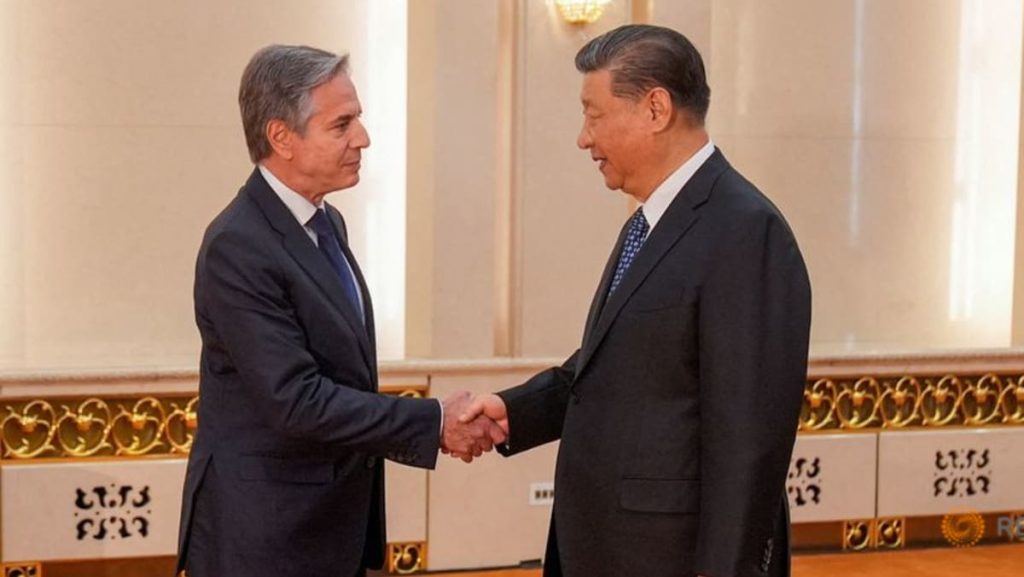US officials and experts are closely monitoring Chinese President Xi Jinping’s actions, with the belief that his top priority is to address challenges in China’s economy and avoid conflicts with Western nations, at least in the short term. During a recent meeting with Chinese Foreign Minister Wang Yi, US Secretary of State Antony Blinken expressed concerns about China’s support for Russia and emphasized the need for responsible management of the relationship between the two countries. Russian President Vladimir Putin announced plans to visit China in May, adding to the complexities surrounding the US-China relationship.
At the meeting with Wang, Blinken stressed the importance of addressing disagreements and potential misunderstandings between the United States and China. He highlighted the shared responsibility that both countries have in managing their relationship and the potential impact it can have on people around the world. With US President Joe Biden facing a challenging re-election campaign against former President Donald Trump, who has taken a hard stance against China, there is added pressure on the administration to navigate the relationship effectively.
The Biden administration has touted diplomatic successes with China, including cooperation on cracking down on producers of precursor chemicals for fentanyl, a powerful painkiller contributing to addiction issues in the US. Despite efforts for collaboration, Biden has also ramped up pressure on China in certain areas, such as supporting legislation that could lead to the divestment of TikTok from Chinese parent company ByteDance. Security and privacy concerns related to the popular app have fueled bipartisan efforts to limit its presence in the US.
Amid these developments, there is a call for clear communication and understanding between the US and China to avoid escalations and support stability in the relationship. Both countries are expected to address areas of contention while seeking common ground on shared challenges. As the geopolitical landscape continues to evolve, successful management of the US-China relationship will be crucial for global security and prosperity. With ongoing shifts in leadership priorities and external pressures, the hope is for constructive dialogue and progress toward mutually beneficial outcomes.
Looking ahead, the upcoming visit by Putin to China could further complicate dynamics in the US-China-Russia triangle. Navigating the interests and agendas of all three major powers will require careful diplomacy and strategic decision-making. The Biden administration must balance domestic political considerations, international pressures, and economic realities in its approach to China, with a focus on stability and cooperation where possible. The outcomes of these complex interactions will shape the future of global governance and influence the trajectories of key international relationships.
In conclusion, the evolving dynamics between the US, China, and other global powers hold significant implications for world affairs. As leaders on both sides seek to address domestic challenges and manage external pressures, the need for constructive engagement and strategic cooperation remains paramount. By prioritizing responsible diplomacy and a shared commitment to peace and prosperity, there is hope for progress in managing the complexities of the US-China relationship and building a more stable international order.


